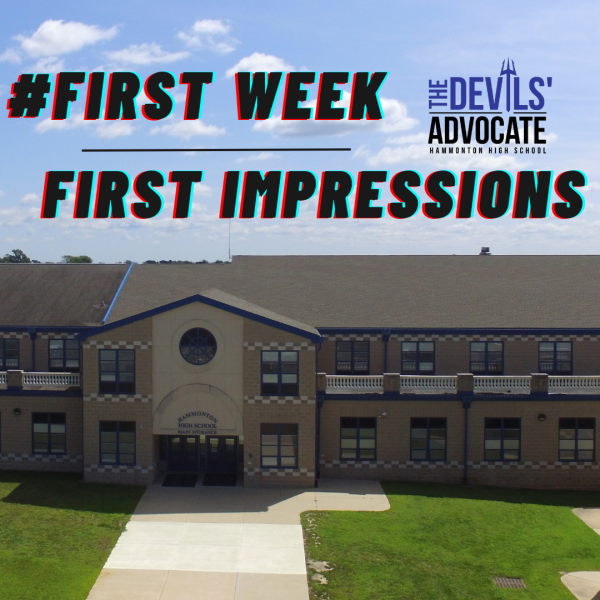ISIS: To what degree do students and staff feel threatened?
People’s opinions have numerous shades on how the government should treat ISIS. Even in a small town as Hammonton, the variety of opinions is very large.
The new emerging power in the Middle East that has already threatened the life of millions is known to the world as ISIS. This new group of jihadist is lead by the caliph Abu Bakr al-Baghdadi. The organization has already taken control of parts of Iraq and Syria. This group has gained a worldwide reputation wight he conquest of Mosul in June. Mosul is the second most important city in Iraq, and it’s position is crucial for trade with the neighboring country Syria.
Baghdadi has shown himself as a battlefield commander and tactician. This makes the jihadist group more attractive to young rebels rather than groups as al-Quaeda that is lead by theologians. Islamic State has shown power by opposing other jihadist groups as al-Nusra and al-Queada by openly opposing them. With these actions several islamist groups have launched an offensive agains ISIS.
An interesting aspect is the claim that ISIS has many followers from foreign countries. The US office of National Intelligence estimated about thirteen-thousand followers from Eastern countries, roughly two-tousand from Europe, and at least one-hundred American Citizens.
Despite the amount of attention that ISIS has gained in world news, to what degree do local teenagers and adults worry about it?
According to Mail Online, an online British news source, Harvard University students believe that “overwhelming in their belief that America and its interventionist foreign policy is a greater threat than the group of Muslim fanatics.”
For students at Hammonton High School, it appears that notion of “out of sight, out of mind” proves true. For example, seniors Clemencia Aguilar and Maria Ayala had not even heard of ISIS and haven’t worried about it.
Some might claim that living in the United States gives a feeling of protection; however, not everyone lives with this false sense of security.
Others believe that the conflict might enlarge if too much and reach devastating proportions, so the government should simply “avoid deploying troops, the air strikes are enough” as math teacher Mr. Jonathan Wilson said. In his opinion, the group must “not be underestimated.”
Others state that the actions takes to stop ISIS are now necessary because of the initial involvement during Bush’s presidency. English teacher Mrs. Carolyn Edwards thinks its too little, too late though.
“Intervention now would be like putting on band-aid after you slit your jocular,” she said.
Sentiments such as this stem from the idea that the US should have either avoided intervention during past times as in the ’80, or America should have never left Iraq in 2012, until the US was certain that the conflicts were over.
Few said that the threat has already been ignored enough, and that intervention is necessary.
“At this point it’s required a world scale involvement in order to defeat similar groups,” Edwards continued. “An ideology can’t be killed” and for this reason America should meet with other countries in order to decide on how the end the conflict once for all.
Is war a realistic means to deal with the problem? History teacher Mr. John Taima thinks it may be.
“Parallel warfare is the only effective solution to win and end the conflict,” he said. According to Taima, American intelligence should focus on how Islamic State funds itself, and then cut the monetary resources. These jihadist groups must all be “treated as a cancer,” focusing on attacking the problem from its base.
According to news sources, at least 100 Americans have joined ISIS.
The future of America’s involvement in the conflict will be decided in the very next weeks, and this will probably represent one of the most crucial moments of the 21st century.











